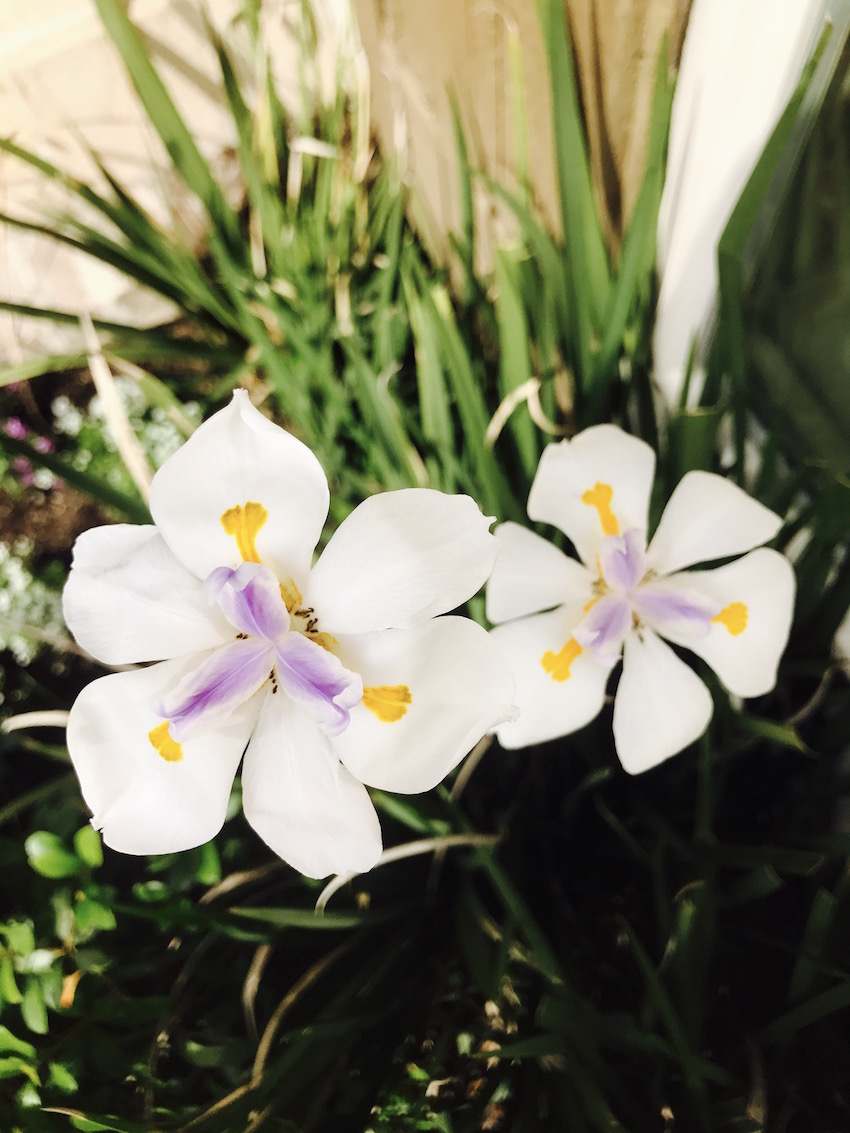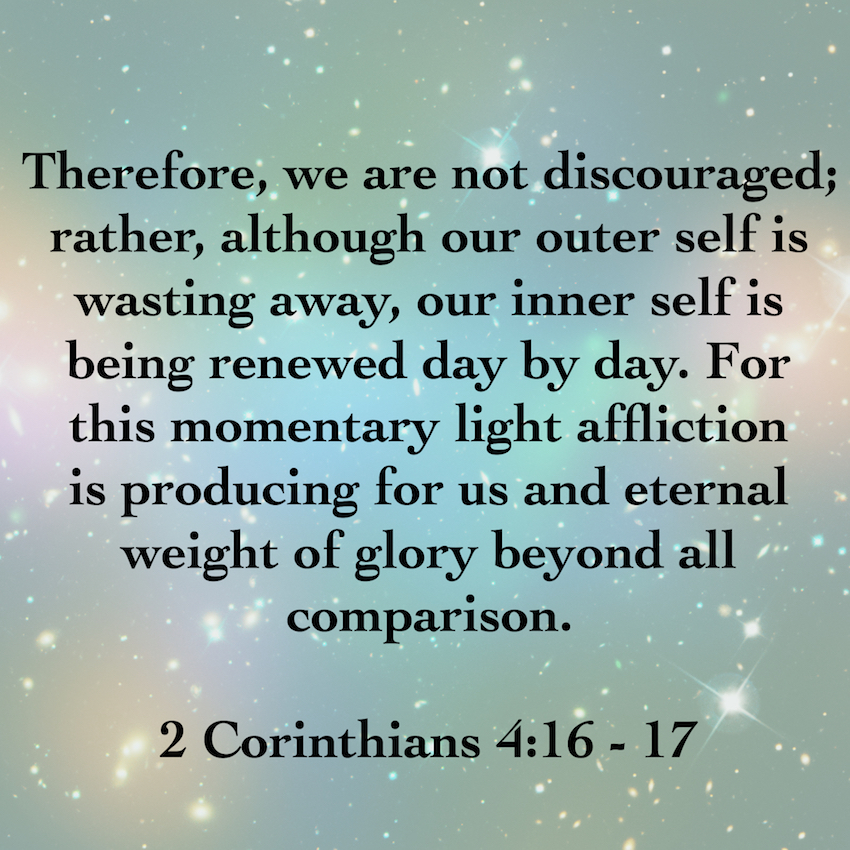Here we go again, you may be moaning as a painful situation rears its ugly head one. more. time. Perhaps you’ve prayed for a miracle for years, decades, even a lifetime. Maybe you’re exhausted from asking God to answer a prayer, or just flat angry at him for apparently not hearing you—especially if you’ve begged incessantly for something good, like a healing, conversion, or cure—something God would surely want, right?...
Read moreHow Dung Helps Flowers Grow: What God Does With Our "Crapola"
 I will heal their defection, says the Lord, I will love them freely; for my wrath is turned away from Israel. I shall be like the dew for Israel: he shall blossom like the lily; he shall strike root like the Lebanon cedar, and put forth his shoots. His splendor shall be like the olive tree and his fragrance like the Lebanon cedar. Hosea 14: 5-7
I will heal their defection, says the Lord, I will love them freely; for my wrath is turned away from Israel. I shall be like the dew for Israel: he shall blossom like the lily; he shall strike root like the Lebanon cedar, and put forth his shoots. His splendor shall be like the olive tree and his fragrance like the Lebanon cedar. Hosea 14: 5-7
It happens every spring. Just as I’m walking around the neighborhood gleefully absorbing the exquisite sights and smells of sweet Louisiana blooms, I get a whiff of something putrid.
Then I remember.
Dung is used as fertilizer in many local gardens, and my garden always does best when I buy the soil advertised as laden with cow manure.
I don’t know about you, but some days I feel plain 'ole crappy about my life. I agonize about mistakes made, opportunities missed, and relationships mired in misunderstanding. I spew apologies, wish for do-overs and rake myself over the coals.
The mercy is, when I finally settle down enough to ground myself in God’s presence, I don’t get mud thrown in my face. Instead, I hear the Lord’s gentle voice whispering: I will heal your defections…I will love you freely…you shall blossom like the lily.
We can be master builders of our own whipping posts, ready and willing to bind ourselves inexorably to every last lash. We can view our failures to love in endless 3-D projections, seeing only the terrible tearings that teased out death. We can rend ourselves asunder with regret, obsessing over our belief that we were supposed to get things right.
We can even call this humility, when the sad fact is that all of this rumbled reasoning reeks of an unholy focus on self, not of holy faith in God.
Because faith in God means that we see our defects—redeemed by God’s grace—as glorified gashes in our humanity capable of spawning new life. Faith in God means we trust that when our personal capabilities crash, God’s competence rises up to save us. Faith in God means that we adjust the lens of our reality to magnify God’s magnanimous mercy instead of our many measly mistakes.
What faith basically means is just that this shortfall that we all have in our love is made up by the surplus of Jesus Christ’s love, acting on our behalf. He simply tells us that God himself has poured out among us a superabundance of his love and has thus made good in advance all of our deficiency. Ultimately, faith means nothing other than admitting that we have this kind of shortfall; it means opening our hand and accepting a gift. Joseph Ratzinger (Pope Emeritus Benedict XVI), What It Means to Be A Christian
In other words, we can’t. God can. Will we let him?
Johann Wolfgang von Goethe once said: "The best fortune that can fall to a man is that which corrects his defects and makes up for his failings." I’d call that fortune grace. What sweet relief that our “dung,” infused with God’s grace, becomes fertile territory where fragrant trees grow and flowers bloom.
My St. Jude Miracle: God Changed My Name From Hopeless Cause to Praise Of God
Feast of St. Jude
You shall be called by a new name pronounced by the mouth of the Lord…No longer shall men call you, “Forsaken,” or your land “Desolate,” but you shall be called “My Delight,” and your land “Espoused”. Isaiah 62:4
It came on like a bad hangover before I’d even sipped the cup. The lump in my throat burned with the double embers of shame and regret: shame over my screwed-up life, suffering-infused life; regret over my decision to speak about it at a large Catholic conference.
The inner slamming began at the airport, the second I got into a car with another conference speaker. Pumped up like a heavy lifter, he gave me the run-down on his whole amazing family during the drive to the hotel.
“My oldest son is 22, and he’s a gifted videographer who’s already earned enough money to buy his own house,” he began. “My second child, a daughter, is brilliant. She runs my ministry full time.” On it went, blah, blah, blah, as I sunk down into the back seat wondering how I’d become the poster child for suffering—the topic I was asked to speak about at the conference.
How has his life managed to go so right, and mine so wrong? I began to agonize before I could even access a scripture verse or slogan I try to live by, such as “Compare and despair,” or “We know that all things work for good for those who love God, who are called according to his purpose.” (Romans 8:28)
The weekend conference happened to be taking place on the dual anniversary of my late husband’s death to a massive heart attack and my brother Stephen’s death by suicide. I was already feeling emotionally brittle when I left home, and the account of my fellow speaker’s thriving family burned like salt in open wounds. Stupidly, I’d forgotten the upending sting of tragic anniversaries and the grief they evoke when I’d agreed to the speaking engagement. I’d also forgotten how easy it is to be thrown back into an old, worn-out narrative—a story we believe about our lives or ourselves that keeps us bound to self-rejection and hopelessness.
Hopeless cause, I brooded as we rode along to the hotel. Yep. That’s my name and my story.
I’d heard the story my whole life: My sweet, young Mama had caught the Asian flu in the final weeks of her pregnancy, and prayed a novena to St. Jude that I wouldn’t come down with it and die. I caught it anyway, and my serious infant illness caused her endless anxiety as she stood over my bassinet for days listening to see if I was still breathing. She named me after St. Jude, given both the novena and the fact that I was born the day after his feast day. I guess St. Jude came through in the end, because I lived to tell the tale. I joked throughout life that I was a “hopeless cause” when telling the story—until my life my life imploded and I began to own the moniker.
Hopeless cause. That’s my name and my story, I repeated to myself with self-pity as I wheeled my suitcase weepily into my hotel room.
And then I remembered God’s voice, thundering loudly in my heart one day: Your name does not mean hopeless cause. It means praise of God! I had heard God speak with such piercing clarity that I’d wept at the holy force of the message.
"What matters in life is not what happens to you but what you remember and how you remember it,” novelist García Márquez once wrote.
What would I remember about my one hallowed life, and how would I choose to remember it?
Would I remember my life not as suffering-infused, but as glory-filled—thanks to all of the outrageous ways God has shown up? Would I memorialize tragic days as sacred days—recalling what God did for me instead of what life dealt me? Would I see beyond grey ashes to silver linings—indulging myself in God’s graced perspective instead of my own puny perceptions?
Help me, God, I prayed. Help me remember what you’ve done for me.
“I’m not here to talk about suffering today,” I heard myself declare convincingly as I stood at the podium later that afternoon. “I’m here to tell you about God’s glory!” I then listened to myself tell my own story with honest amazement and gratitude over the marvelous works and ways of God all along the way. God had changed my name—and my story—from hopeless cause to praise of God.
I put water in the desert and rivers in the wasteland for my chosen people to drink, The people whom I formed for myself that they might announce my praise. Isaiah 43:20
This article was previously published on Aleteia.
The Healing Power, and Victory, of Embracing Change
There is an appointed time for everything, and a time for every thing under the heavens. Ecclesiastes 3:1
It was an epiphany of sorts, coming forth as a season of change presents itself. In the midst of a series of painful life adjustments, I admitted for the first time that I don’t like change. During a moment of insight, I suddenly understood that I associate change with chaos, uncertainty and pain, and with having the rug pulled right out from under my feet.
How many of us experience change this way?
As it often happens when God opens up a theme for metanoia (which means to change one’s mind and heart about something), all of life’s conversations and events suddenly seemed to segue into one single exclamation point. This week’s lesson in change was no exception.
First, there was the butterfly that lay on the ground in front of the chapel: a gorgeous creature decorated with brilliant fall colors that appeared to be trying to flutter its wings. Spontaneously, I leaned over and picked it up, only to realize that its wing was broken and that ants were already eating its corpse. Putting the butterfly back in its place, I went into the chapel to pray. There, I opened my spiritual reading to a page that, of all unexpected things, was discussing the butterfly as a metaphor for the spiritual life.
That got my attention.
A butterfly is probably the quintessential image of change: a being whose existence comes about by a metamorphosis that literally transforms a creature into something new, and quite often, into something stunningly beautiful. As I prayed with the image, it became quickly obvious that the broken-winged butterfly represented how I’ve tended to view change—not as something transformative and life giving, but as something traumatic, and even potentially deadly.
I could almost hear God whispering: Could it be time to embrace a new understanding of change?
My next stop was an Al-Anon meeting, where the topic of the day was…you guessed it: Change! It seems that a common theme among those adversely affected by the insanity of addiction is a strong resistance to change. Like me, many people healing from addiction’s fallout equate change with chaos and uncertainty—and with holding one’s breath to brace for what’s coming next. But the real insight of the meeting was that a person must be proactive about change in order to find healing. In fact, choosing to change is often absolutely necessary for new life to emerge.
This brought me back to the butterfly. Wanting to understand how metamorphosis occurs, I began to search the internet when I returned home. I was fascinated to learn that scientists often equate a caterpillar’s morphing into a butterfly with death and resurrection, a point that brought the whole lesson full circle. The greatest change that has ever happened in history—the greatest metamorphosis that’s ever taken place in the universe—was the Resurrection of Jesus Christ, which happened only after Jesus willingly chose to embrace death, and all of its accompanying terrors, to change the corruptible into what is incorruptible, and death itself into victorious new life.
Personal change usually involves our willful acceptance of many deaths—the death of our ways, our wills, our wishes—for the promise of new life. And little by little, through a process of transfiguration that takes time and patience, we begin to find our interior hardware radically rearranged unto glory, that we might alight with new wings that bear his brilliance—wings that can only burst forth by the shedding of the old and the awakening to the new. In a word, through change.

This article was previously published at Aleteia.
Have you consecrated your child to the Immaculate Heart of Mary? Click here to download a free "Mary's Way" Consecration Prayer.


